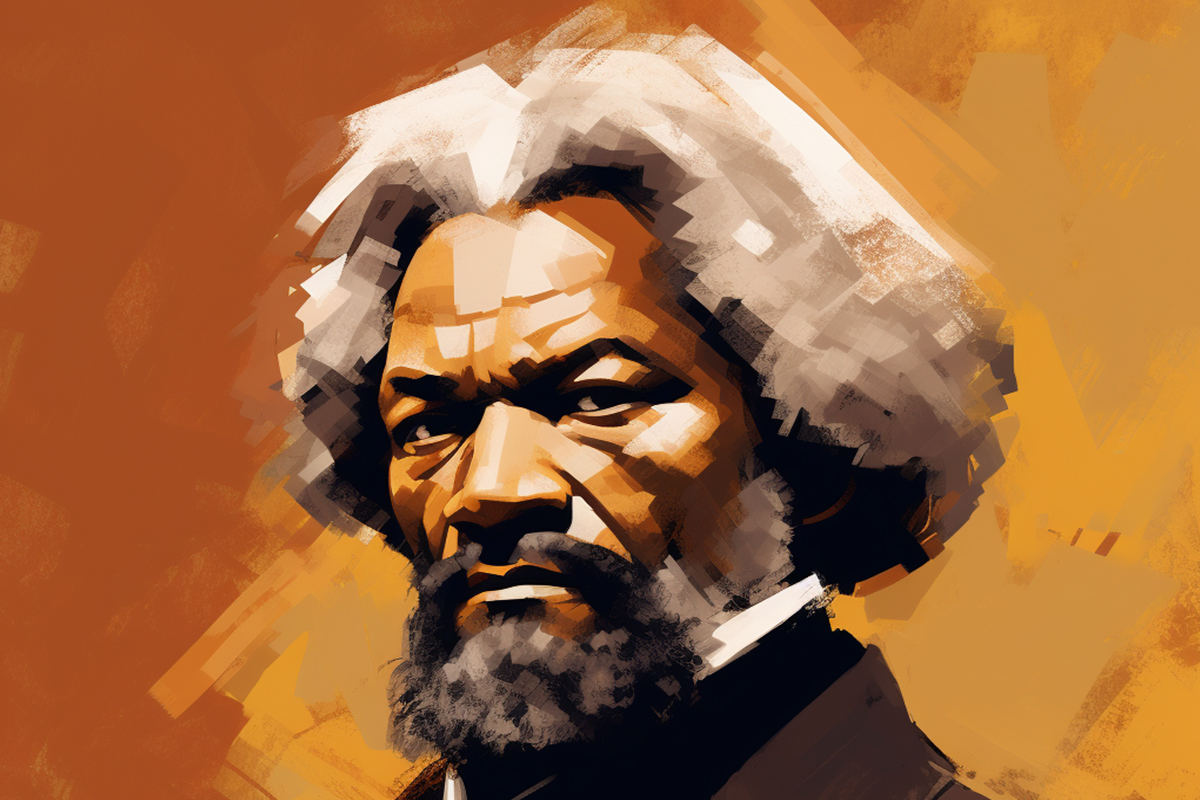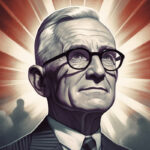Frederick Douglass is a name that resonates with history, activism, and inspiration. Born into slavery, he managed to escape his bondage and dedicate his life to the abolition of slavery, the fight for civil rights, and the pursuit of education. His works are a cornerstone of American literature, and his impact on social reform remains relevant to this day. In this article, we will explore the 10 best books written by Frederick Douglass, taking a closer look at the context, themes, and legacy of each publication.

A Brief Introduction to Frederick Douglass
Fredrick Douglass was a prominent figure in the abolitionist movement and a powerful voice for social justice and human rights. Born in 1818 in Talbot County, Maryland, as Frederick Augustus Washington Bailey, he was raised in slavery and separated from his mother at an early age. Despite the fact that it was illegal for slaves to learn how to read and write, Douglass was taught in secret by his slave mistress. This early education would prove to be instrumental in his later activism and writing.
At age 20, he managed to escape slavery and eventually settled in Massachusetts, where he began to speak publicly against slavery. Known for his oratory skills, he quickly gained recognition as an eloquent and powerful speaker. He also wrote extensively about his experiences, many of which remain relevant to this day.
Early Life and Escape from Slavery
Douglass’s early life and escape from slavery have been the subject of much fascination. His book “Narrative of the Life of Frederick Douglass, an American Slave” (1845) is a powerful testimony to the horrors of slavery and the dehumanization of its victims. In this book, Douglass chronicles his childhood, family, and education before and after his escape from slavery. His vivid descriptions of the brutalities of slave life, as well as his reflections on the psychological and spiritual effects of slavery, have made this book a classic of American literature.
Despite the harsh realities of his early life, Douglass never lost his determination to fight for justice and equality. He believed that education was the key to liberation and spent much of his life advocating for the education of African Americans and other marginalized groups.
Abolitionist, Writer, and Statesman
After his escape from slavery, Douglass became involved in the abolitionist movement and started to speak publicly against slavery. He also became a writer and began to publish his works in newspapers, journals, and books. His publications range from speeches, essays, and letters to autobiographies, fiction, and even poetry.
In addition to his writing, Douglass served as a statesman and diplomat, representing the interests of his fellow African Americans and advocating for social justice and human rights. He was appointed as a US Marshal by President Rutherford B. Hayes and served as the Minister Resident and Consul General to Haiti under President Benjamin Harrison.
Through his writings and speeches, Douglass became a leading voice in the struggle against slavery and for civil rights. His uncompromising stance and his passionate advocacy for the abolition of slavery, women’s suffrage, and the rights of Black soldiers and veterans have made him a symbol of freedom, courage, and perseverance. He also challenged traditional views of masculinity and femininity by advocating for gender equality and emphasizing the importance of education and self-improvement for both men and women.
Frederick Douglass’s legacy continues to inspire and inform our understanding of American history and the ongoing struggle for social justice and equality. His life and work serve as a reminder of the power of individual action and the importance of speaking truth to power.
The Autobiographies
Narrative of the Life of Frederick Douglass, an American Slave (1845)
“Narrative of the Life of Frederick Douglass, an American Slave” (1845) is Douglass’s first autobiography and one of his most important works. In this book, Douglass recounts his life as a slave, his escape to freedom, and his experiences as a free man. He also reflects on the role of education, religion, and politics in the struggle against slavery and racism. The book was an instant success and established Douglass as a major literary figure and a leading abolitionist.
“Narrative of the Life of Frederick Douglass” is a powerful indictment of slavery and a testimony to the resilience and courage of its victims. Douglass’s ability to convey the pain, fear, and hope of his experiences makes this book a moving and unforgettable portrait of the human costs of slavery.
My Bondage and My Freedom (1855)
“My Bondage and My Freedom” (1855) is Douglass’s second autobiography and a more comprehensive and reflective account of his life and work. In this book, Douglass explores the themes of identity, freedom, and selfhood in greater depth. He also reflects on his relationship with his white abolitionist friends and colleagues and on the challenges of being a Black leader in a racist and oppressive society.
“My Bondage and My Freedom” combines personal narrative, political analysis, and philosophical reflection to provide a nuanced and complex picture of Douglass’s character, beliefs, and aspirations. The book also includes a critique of the American Constitution and its limitations on freedom and equality, as well as a defense of the principles of natural law and human rights.
Life and Times of Frederick Douglass (1881)
“Life and Times of Frederick Douglass” (1881) is Douglass’s third and final autobiography and an overview of his life and career up to that point. In this book, Douglass reflects on his accomplishments, his failures, and his legacy. He also offers his insights into the political, social, and economic challenges facing African Americans in the post-Civil War era.
“Life and Times of Frederick Douglass” is a more retrospective and reflective work than his previous autobiographies. It reveals Douglass’s growing awareness of his own mortality and his desire to pass on his vision of freedom and justice to future generations.
The Speeches and Essays
Frederick Douglass was a prominent abolitionist, writer, and orator who fought tirelessly for the rights and freedom of Black Americans. His speeches and essays were powerful tools in the struggle against slavery and racism, and continue to inspire and challenge readers today.
The Heroic Slave (1853)
“The Heroic Slave” (1853) is the only work of fiction written by Douglass. It tells the story of Madison Washington, a slave who leads a rebellion on board a slave ship and eventually escapes to Canada. The book is a powerful critique of slavery and a tribute to the heroism and resistance of its victims.
The character of Madison Washington is based on a real-life figure who led a successful slave rebellion on the Creole, a ship carrying slaves from Virginia to Louisiana in 1841. The rebellion resulted in the deaths of several crew members and the escape of 128 slaves to the British colony of the Bahamas. Douglass was inspired by this event and saw it as an example of the courage and determination of enslaved people to resist their oppressors.
“The Heroic Slave” also reflects Douglass’s belief in the power of literature to inspire social change and to challenge dominant ideologies. The book was widely read and praised for its artistic merit and its political relevance.
My Escape from Slavery (1860)
“My Escape from Slavery” (1860) is a speech delivered by Douglass in response to accusations that his previous autobiographies were exaggerated and untrue. In this speech, Douglass describes in detail his escape from slavery and refutes the claims of his critics.
Douglass’s escape from slavery was a daring and dangerous journey that took him from Maryland to New York City in 1838. He disguised himself as a sailor and used false papers to evade capture and travel to freedom. The speech is a powerful and personal account of the challenges and dangers of escaping slavery. It also reveals Douglass’s confidence in his own abilities and his determination to expose the truth about slavery and to defend his own reputation.
The Meaning of July Fourth for the Negro (1852)
“The Meaning of July Fourth for the Negro” (1852) is a speech delivered by Douglass on the 4th of July, a day commemorating American independence. In this speech, Douglass challenges the hypocrisy and injustice of celebrating freedom and liberty while denying them to Black Americans.
Douglass’s speech is a searing indictment of American society and politics. He points out that while white Americans celebrate their freedom and independence, Black Americans are still enslaved and denied basic human rights. He asks, “What, to the American slave, is your Fourth of July? I answer: a day that reveals to him, more than all other days in the year, the gross injustice and cruelty to which he is the constant victim.”
“The Meaning of July Fourth for the Negro” is a scathing critique of American democracy and its failure to live up to its ideals. It reveals Douglass’s anger, frustration, and disillusionment with the empty rhetoric and false promises of American democracy. At the same time, it expresses his hope and his faith in the power of education, activism, and moral courage to effect social change.
The Letters and Correspondence
Letters from Abroad (1846-1847)
“Letters from Abroad” (1846-1847) is a collection of letters written by Douglass during his travels in England, Ireland, and Scotland. In these letters, Douglass reflects on his experiences as a free man in a foreign country and on the differences between British and American attitudes towards slavery and racism.
“Letters from Abroad” is a fascinating and insightful glimpse into Douglass’s personality and worldview. It also reveals his ability to connect with people across cultures and to use his personal stories to build bridges of understanding and empathy.
Correspondence with Susan B. Anthony (1866-1875)
The correspondence between Frederick Douglass and Susan B. Anthony is a series of letters exchanged between the two prominent social reformers during the post-Civil War era. In these letters, Douglass and Anthony discuss a wide range of issues, including the right to vote, the meaning of feminism, and the challenges of building a progressive movement.
Through these letters, we can see the close friendship and intellectual exchange between two visionary leaders who shared a deep commitment to social justice and human rights. The letters also reveal the tensions and disagreements that sometimes arose between the two, as well as their ability to overcome these differences and to collaborate for a common cause.
The Final Years and Legacy
The Frederick Douglass Papers
The Frederick Douglass Papers is a collection of letters, speeches, essays, and other writings by and about Douglass. The collection, which was edited by John W. Blassingame, was published in five volumes between 1979 and 1992.
The Frederick Douglass Papers is a testament to Douglass’s legacy as a writer, activist, and statesman. It includes many previously unpublished works and provides a comprehensive view of Douglass’s life and career. The collection is also a valuable resource for scholars and students of history, literature, and political science.
The Impact of Douglass’s Writings on American History
The impact of Frederick Douglass’s writings on American history cannot be overstated. His works have inspired generations of readers, activists, and leaders to fight against oppression, inequality, and injustice.
Douglass’s writings have also challenged dominant narratives and ideologies about race, gender, and power. His insistence on the humanity and dignity of all people, regardless of their race or gender, has helped to shape modern concepts of human rights and social justice.
Today, the legacy of Frederick Douglass continues to inspire and empower people all over the world. His vision of a more just and inclusive society, based on the principles of freedom, equality, and human dignity, remains as relevant and urgent as ever.
- The 11 Best Books About Cats You Should Read - January 16, 2024
- The 9 Best Books on Building Confidence - January 16, 2024
- Discover the 10 Best Books on the Brain - January 16, 2024







